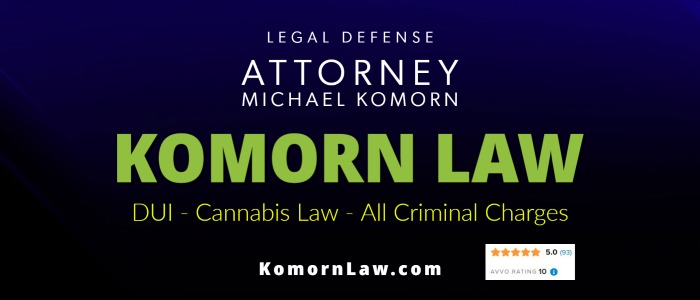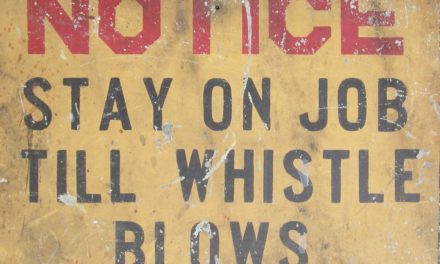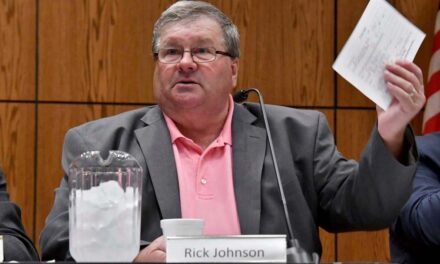DeRUITER v TOWNSHIP OF BYRON
Docket No. 158311. Argued on application for leave to appeal October 3, 2019. Decided April 27, 2020
Christie DeRuiter, a registered qualifying medical marijuana patient and a registered primary caregiver to qualifying patients, brought an action in the Kent Circuit Court against Byron Township, alleging that the township’s zoning ordinance which required that a primary caregiver obtain a permit before cultivating medical marijuana and that the caregiver cultivate the marijuana within a dwelling or garage in a residentially zoned area within the township as part of a regulated home occupation at a full-time residence directly conflicted with – and – was therefore preempted by the Michigan Medical Marihuana Act (the MMMA), MCL 333.26421 et seq.
DeRuiter cultivated marijuana in an enclosed, locked facility at a commercially zoned property she rented in the township; she did not obtain a permit from the township before cultivating the medical marijuana as a primary caregiver.
At the township’s direction, DeRuiter’s landlord ordered her to stop cultivating medical marijuana at the property or face legal action.
When the township attempted to enforce its zoning ordinance, DeRuiter filed the instant action, seeking a declaratory judgment regarding the ordinance’s legality; the township countersued, seeking a declaration that the ordinance did not conflict with the MMMA.
Both parties moved for summary disposition, and the court, Paul J. Sullivan, J., granted summary disposition in favor of DeRuiter, holding that the ordinance directly conflicted with the MMMA and that it was therefore preempted by the act.
The Court of Appeals, HOEKSTRA, P.J., and MURPHY and MARKEY, JJ., affirmed the trial court order, concluding that the MMMA preempted defendant’s home-occupation zoning ordinance because the ordinance directly conflicted with the MMMA by prohibiting what the MMMA permitted and because the ordinance improperly imposed regulations and penalties upon persons who engage in the MMMA-compliant medical use of marijuana. 325 Mich App 275 (2018).
Byron Township applied for leave to appeal in the Supreme Court, which ordered and heard oral argument on whether to grant the application or take other action. 503 Mich 942 (2019).
In a unanimous opinion by Justice BERNSTEIN, the Supreme Court, in lieu of granting leave to appeal, held:
Under the conflict-preemption doctrine, the MMMA DOES NOT nullify a municipality’s inherent authority to regulate land use under the Michigan Zoning Enabling Act (MZEA), MCL 125.3101 et seq., as long as
(1) the municipality does not prohibit or penalize the cultivation of medical marijuana and (2) the municipality does not impose regulations that are unreasonable inconsistent with regulations established by state law.
MCL 333.26424(b)(2) states that primary caregivers and qualifying patients must keep their plants in an enclosed, locked facility in order for those individuals to be entitled to the MMMA protections in MCL 333.26424(a) and (b).
Because an enclosed, locked facility may be found in various locations on various types of property, the township’s ordinance limiting where medical marijuana must be cultivated within the locality did not directly conflict with the MMMA’s requirement that marijuana plants be kept in an enclosed, locked facility.
The township’s ordinance requiring primary caregivers to obtain a permit and pay a fee before using a building or structure within the township to cultivate medical marijuana also did not directly conflict with the MMMA because the ordinance did not effectively prohibit the medical use of marijuana.
1. Generally, local governments may control and regulate matters of local concern when that power is conferred by the state.
However, state law may preempt a local regulation either expressly or by implication. Implied preemption can occur when the state has occupied the entire field of regulation in a certain area (field preemption) or when a local regulation directly conflicts with state law (conflict preemption).
A direct conflict exists when the ordinance permits what the statute prohibits or the ordinance prohibits what the statute permits; there is no conflict between state and local law when a locality enacts regulations that are not unreasonable and inconsistent with regulations established by state law so long as the state regulatory scheme does not occupy the field.
That is, while a local ordinance is preempted when it bans an activity that is authorized and regulated by state law, a local governmental unit may add to the conditions in a statute as long as the additional requirements do not contradict the requirements set forth in the statute.
A court must review both the statute and the local ordinance to determine whether conflict preemption applies.
2. MCL 333.26424(a) and (b) provide that qualifying patients and primary caregivers are immune from arrest, prosecution, or penalty in any manner, including, but not limited to, civil penalty or disciplinary action for the medical use of marijuana in accordance with the MMMA.
In turn, MCL 333.26424(b)(2) provides that primary caregivers and qualifying patients must keep their plants in an enclosed, locked facility in order to qualify for the immunity.
This requirement sets forth the type of structure marijuana plants must be kept and grown in for a patient or a caregiver to be entitled to the MMMA protections in MCL 333.26424(a) and (b), but the provision does not address where marijuana may be grown.
Under Ter Beek v City of Wyoming, 495 Mich 1 (2014), a local ordinance conflicts with the MMMA when the ordinance results in a complete prohibition of the medical use of marijuana; however, The MMMA does not foreclose all local regulation of marijuana.
In that regard, the act does not nullify a municipality’s inherent authority to regulate land use under the MZEA as long as (1) the municipality does not prohibit or penalize the cultivation of medical marijuana and (2) the municipality does not impose regulations that are unreasonable and inconsistent with regulations established by state law.
Because an enclosed, locked facility may be found in various locations on various types of property, a local regulation limiting where medical marijuana must be cultivated within a locality does not conflict with the statutory requirement that marijuana plants be kept in an enclosed, locked facility.
In this case, the township’s ordinance allowed for the medical use of marijuana by a registered primary caregiver but placed limitations on where the caregiver could cultivate marijuana within the township.
The ordinance’s geographical restriction added to and complemented the limitations imposed by the MMMA; it did not directly conflict with the MMMA.
While the ordinance went further in its regulation than the MMMA, the township appropriately used its authority under the MZEA to craft an ordinance that did not directly conflict with the MMMA’s provision requiring that marijuana be cultivated in an enclosed, locked facility. The township also had authority under the MZEA to require zoning permits and permit fees for the use of buildings and structures within its jurisdiction.
The township’s ordinance requiring primary caregivers to obtain a permit and pay a fee before using a building or structure within the township to cultivate medical marijuana did not directly conflict with the MMMA because the ordinance did not effectively prohibit the medical use of marijuana, and DeRuiter did not argue that the requirements for obtaining a permit were so unreasonable as to create a conflict.
To the extent that DeRuiter argued that the immunity provisions of the MMMA contributed to a blanket prohibition on local governments regulating the medical use of marijuana with respect to time, place, and manner of such use, that argument sounded in field preemption; but neither the trial court nor the Court of Appeals reached the issue of field preemption, and DeRuiter conceded that her appeal did not concern the issue of field preemption.
The Court of Appeals erred by affirming the trial court’s grant of summary disposition in favor of DeRuiter.
Reversed and remanded to the trial court for further proceedings.
See the Syllabus and Michigan Supreme Court Opinion
If you are medical marijuana patient or caregiver facing any type of legal action contact attorney Michael Komorn. The Komorn Law firm has a long history of fighting for the rights of medical marijuana patients and caregivers.
Visit KomornLaw.com or Call our office 248-357-2550 for a case evaluation.
Is the End of the Patient- Caregiver System Near?
- Court of Appeals Decision Green Light for MMMA Caregivers?
 Shares
Shares - Stashing legal defense funds is smart if you’re working with cannabis
 Shares As the marijuana industry continues to grow and evolve in Michigan, it’s crucial for marijuana cultivators to understand the importance of having legal defense funds readily available. Despite the legalization of marijuana in the state, there are still potential legal challenges and risks that growers may face. Having legal funds at the ready applies… Read more: Stashing legal defense funds is smart if you’re working with cannabis
Shares As the marijuana industry continues to grow and evolve in Michigan, it’s crucial for marijuana cultivators to understand the importance of having legal defense funds readily available. Despite the legalization of marijuana in the state, there are still potential legal challenges and risks that growers may face. Having legal funds at the ready applies… Read more: Stashing legal defense funds is smart if you’re working with cannabis









